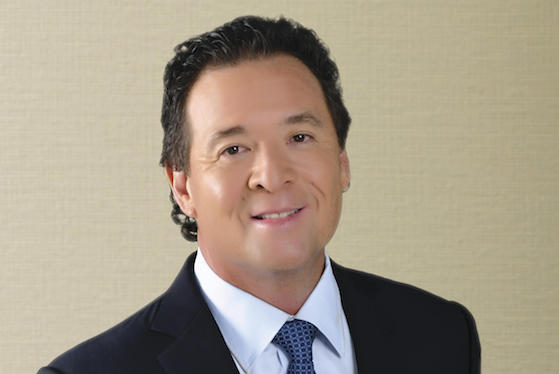On January 4, Hilton Worldwide spun off into three separate and simplified publically traded companies – all motivated by goals to capitalize on growth opportunities, as well as create greater efficiencies and shareholder values. The results: Hilton, the fee-based management and franchise company; Park Hotels & Resorts, a REIT with 67 hotels and more than 35,000 rooms; and Hilton Grand Vacations, managers of 46 resorts for which it markets and sells vacation ownership intervals.
HOTELS’ Investment Outlook talked to the CEOs of all three companies – Hilton’s Chris Nassetta, Park’s Tom Baltimore and HGV’s Mark Wang – to learn more about their individual opportunities and challenges.
Today, HOTELS features the interview with Wang; read the interviews with Nassetta and Baltimore that ran earlier this week.

While “the split” kept the Hilton halo intact for another 100 years, when Hilton Grand Vacations President and CEO Mark Wang rang the bell at the New York Stock Exchange on January 10, it signaled that the vacation ownership group was now truly on its own to deploy its own capital, as well as grow supply and its membership base in a very capital-intensive business.
Based in Orlando, Florida, the manager, marketer and seller of timeshare intervals at 46 resorts separates itself by growing its owner base through access to the Hilton system in a segment considered to have a shrinking pool of potential customers. HGV generates 60% of sales from new customers, compared with barely 40% among competitors, according to recent analyst reports. “We’ve had 23 years of consecutive net owner growth, but importantly, we’ve increased our member base by 41% over the last five years,” Wang says. “That’s been fueled by a great relationship with Hilton Worldwide.”
HGV also differentiates itself with an inventory sourcing based on a fee-for-service model that drives a return on capital of ~40% versus peers at ~20%, analysts add. Wang says HGV has almost doubled its supply inventory in the past five years. While it took 17 years to put 195,000 intervals into the system, in the past five, HGV has added another 185,000. That has allowed it to reduce capital spend, which in 2007-2008 averaged around US$400 million a year to about US$100 million a year in 2014-2015, which improved return on invested capital from 12% to over 40% in the same period.
“We see numerous catalysts (capital allocation reveal, Japanese expansion, investor base turnover) and a relatively healthy leisure travel backdrop,” writes Bradford Dalinka, analyst at SunTrust Robinson Humphrey. Dalinka points to HGV’s business (60% fee-for-sevice versus virtually zero for peers), which generates higher returns than traditional timeshare models.
Reviews like that bode well for Wang and his team, but Dalinka adds that risks include disruption at key distribution points (HGV is relatively concentrated versus peers) and the health of the Japanese consumer (HGV has significant exposure). The timeshare industry depends on the availability of capital, so changes to the regulatory environment also represent headwinds.
Disciplined strategy
Wang says the split creates a great opportunity. “We’ve had very strong growth over the last seven, eight years, but we’re now at that point where we need to be investing more into the business,” he says. “We will continue to be disciplined going forward and continue to be capital efficient, but incremental or a modest increase in our capital spend should allow us to move into some new markets.”
The strategy includes making sure HGV has ample inventory in core markets such as a recently opened property in Hilton Head, South Carolina, as well as increased focus on urban markets. For example, it just took three floors of an Embassy Suites in Washington, D.C.
With a strong membership base in Japan, who source the Hawaiian market, HGV has found pent-up demand for product inside that country as well. Wang anticipates announcing one or two projects there this year.
While he can’t provide specifics, Wang has been looking at U.S. resort and urban markets, and wants to expand in the western region. “We also think there’s a mid-market play that’s been under-served by the brands. We’ve also looked at China a number of times and we’re excited to have a new shareholder (China’s HNA) that potentially could open up some opportunities for us.”
Perhaps what gives Wang the most assurance is HGV’s 100-year license agreement with Hilton, which he says is 100% variable. “We’re completely aligned,” he says. “They’re going to earn their fees on this license agreement only if we’re succeeding. And while there are other companies who pay a fixed fee plus a smaller variable, we’re paying a bigger variable, but no fixed fee.”

